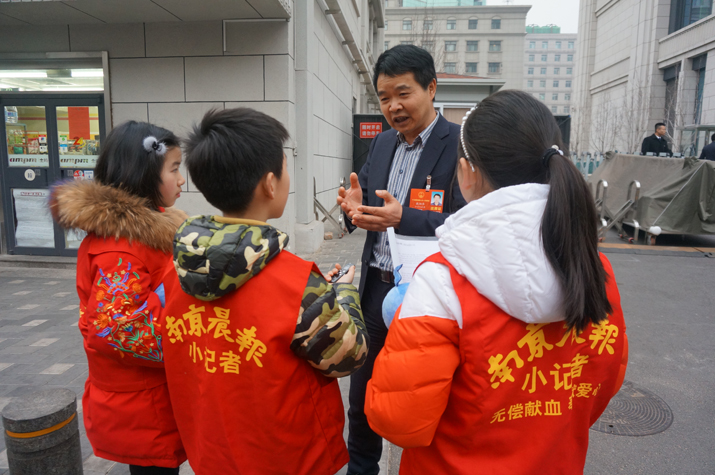
Young People Help Revitalize Rural Areas
The rural revitalization strategy aims to make agriculture a promising sector and farming an attractive occupation while developing rural areas into beautiful and comfortable hometowns.
—New Strategies are Needed to Attract the Young to the Countryside
By Zeng Wenhui
Lu Man, a 33-year-old NPC deputy, is an entrepreneur who runs a business in the rural area of east China’s Jiangsu Province. Lu told Beijing Review that nowadays the Internet is a key factor for economic development in these areas since villages, lacking in marketing channels, have to turn to the Internet for help. For example, 90 percent of the high protein and low fat meat products her company offers are sold through the Internet.
Another factor is that freight charges tend to run high in rural areas. Farm production usually has a small profit margin, so a high freight cost is likely to have an adverse effect on rural industrial development. Rural entrepreneurs like Lu were encouraged by the fact that Premier Li mentioned the need to cut logistics charges and rates for mobile Internet services.
This year’s report also highlighted the importance of entrepreneurship and innovation. The rural revitalization strategy aims to make agriculture a promising sector and farming an attractive occupation while developing rural areas into beautiful and comfortable hometowns.
“What I’m most concerned about is how to attract talent back to the rural areas since talent is the precondition for industrial development. I proposed some ideas on supporting college graduates going back to their rural hometowns,” Lu said.
Lu cares deeply about the welfare of young people working in rural areas. In some cases, those willing to go back to their hometowns are discouraged by the lack of opportunities. She hopes that tailored strategies can be hammered out in line with local and regional conditions so that young people in villages have equal access to as many opportunities as those living in cities. She feels that whether they are in rural or urban areas, the young should be free to work in agriculture, industry or services.
“These strategies should not be contingent on one’s educational background. Those who do not have a university diploma should also be considered as long as they have received professional technical training,” Lu said.
Besides, she explained, it’s also important to offer moral support to the young who choose to start their own businesses in rural areas. It is still widely believed that young people who go back to their rural hometowns to work have failed and are therefore inferior to those who stay in the cities. It is crucial, she said, to rid the public of this outdated concept.
“Those who choose to go back home should be filled with pride or, at the very least, they should not be taunted or despised,” said Lu.

Ouyang Hua, an NPC deputy and Secretary of the Communist Party of China General Branch in Baita Village in Jiangsu Province’s Yixing City, lauded the proposal for improving urban-rural development mechanisms as a timely and crucial point. His village is working to build beautiful rural landscapes that attract city dwellers by encouraging villagers to develop upscale homestay programs as well as entertainment services.
Baita Village received about 800,000 visitors in 2017 and is on course to reach its target of 1 million visitors this year. Local villagers thus are managing to make a substantial amount of money through tourism.
The report also pointed to reform and innovation as a means to build powerful new growth drivers for rural development. Ouyang’s village has developed companies with fashionable names like “Baita Starbucks” and “Baita Spring,” with a view to increasing young people’s interest in settling in rural areas.
“Without services that interest the young, it’s difficult to retain them in the village,” Ouyang said. He added that it is also necessary to develop industries closely related to young people’s daily lives, so that they will feel the convenience found in cities. There are cafes in Baita Village, take-away food is available through mobile payment and there is a 17-hectare cultural park.
“The hope in rural areas lies with young people,” said Ouyang. Thanks to these innovations, more and more young people are choosing to stay in the village and some have even return from different cities.
Like Lu, Ouyang also expressed his hope for favorable mechanisms and policies that would encourage college graduates to go back to their rural hometowns to create startups. For instance, favorable policies need to be adopted to support culture-based rural tourism programs that tend to attract aspiring young entrepreneurs.
Source: Beijing Review
 Facebook
Facebook
 Twitter
Twitter
 Linkedin
Linkedin
 Google +
Google +










